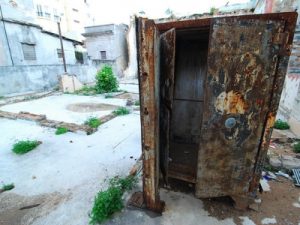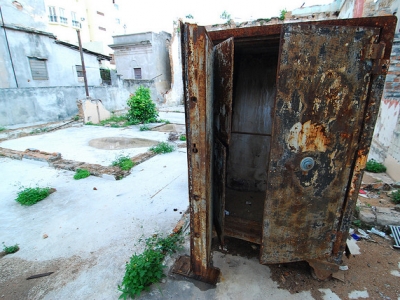 The second part of this article has been published at: http://www.windowonphuket.com/features_property_phuket/legal-matters-69.htm
The second part of this article has been published at: http://www.windowonphuket.com/features_property_phuket/legal-matters-69.htm
The first part can be found at: http://www.windowonphuket.com/features_property_phuket/legal-matters-trust-accounts.htm
The following is the reproduced text of Part 2 setting out further information on ‘Trust’ and ‘Escrow’ in Thailand.
Continued from Part 1…
The following issues exist, although this list is only a selection of many potential issues:
1. The company or firm in which the monies are placed may become insolvent. Many clients do not expect their law firms to be in financial difficulty, and therefore may not think about conducting due diligence on the financial health of the advisers in whom they place trust in taking care of their monies.
2. Monies may be mingled with operational monies. This isn’t possible in certain jurisdictions – such as the UK, U.S, Hong Kong, Singapore – without very severe sanctions . For those that have been subject to a legal regime where this matter is supervised closely, the event is almost unthinkable.
3. If the company has one director, and that director dies, becomes mentally incapacitated or indisposed, then there may be limited methods of solving any financial issues in the company or, worst-case scenario, an inability to access the bank account.
4. If the firm is a series of limited liability companies, then there may be several bank accounts and it might not be clear to a client where their monies are being held and on what terms and conditions.
5. If the company you have placed monies with comes under investigation for corruption, money laundering or other alleged criminal acts or other misdemeanors, then your monies could be ‘frozen’ pending the outcome of the investigation.
6. If the company is a real estate agent, then the agent may have a vested interest in the release of the monies, linked to a commission. The independence of any party seeking to provide assurance of their capability to be an intermediary must be inspected closely.
7. If there is a dispute, then if there is no true escrow, the party holding the monies will most likely refuse to take any action whatsoever, until the dispute is resolved. This might mean an unfairly prejudiced party, who believed that by placing monies certain rights had been secured, is left to be forced to negotiate when in other circumstances it may have been able to insist upon release or payment of monies.
Solutions and Summary
The Escrow Regime in Thailand is rarely used for private real estate transactions. This is because the nature of a transaction is time sensitive which is contrary to some of the requirements of the regime, such as inspection and approval of the Escrow Agreement.
The informal escrow regime of using an advisory firm or intermediary company, carries the risks set out above. These risks can be mitigated through proper due diligence of the possible custodian of the funds, its financial health, the background and ethical standards of the persons in control of the monies, and safeguards to ensure that the monies can be inspected in the bank account at any time with full transparency of the status of the monies.
A formal escrow regime could be used in other jurisdictions, where escrow can be speedy but also regulated with vigour.
The use of the word ‘trust’ can be very misleading – because simply stating the word ‘trust’ can instill the feeling of trust in others. We recommend that trust is placed in parties in relation to custody of monies, only when the reasons for placing such trust have been properly investigated and established.
This article was written by Desmond Hughes
of HughesKrupica, HughesKrupica Consulting Co. Ltd
International Legal Services Provider: Real Estate; Hospitality; Leisure.
www.hugheskrupica.com








